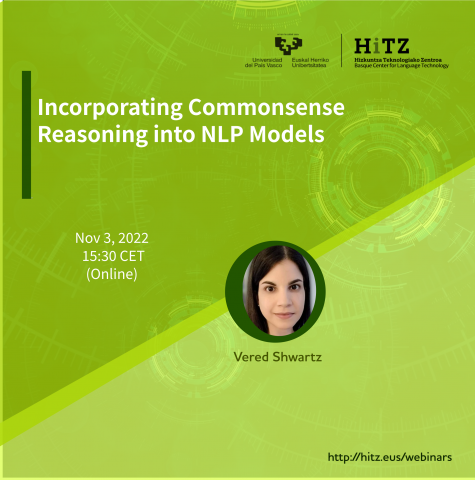Vered Shwartz

NLP models are primarily supervised, and are by design trained on a sample of the situations they may encounter in practice. The ability of models to generalize to and address unknown situations reasonably is limited, but may be improved by endowing models with commonsense knowledge and reasoning skills. In this talk, I will present several lines of work in which commonsense is used for improving the performance of NLP tasks: for completing missing knowledge in underspecified language, interpreting figurative language, and resolving context-sensitive event coreference. Finally, I will discuss open problems and future directions in building NLP models with commonsense reasoning abilities.
Vered Shwartz is an Assistant Professor of Computer Science at the University of British Columbia and a faculty member at the Vector Institute for Artificial Intelligence. Her research interests include commonsense reasoning, computational semantics and pragmatics, and multiword expressions. Previously, Vered was a postdoctoral researcher at the Allen Institute for AI (AI2) and the University of Washington, and received her PhD in Computer Science from Bar-Ilan University.




